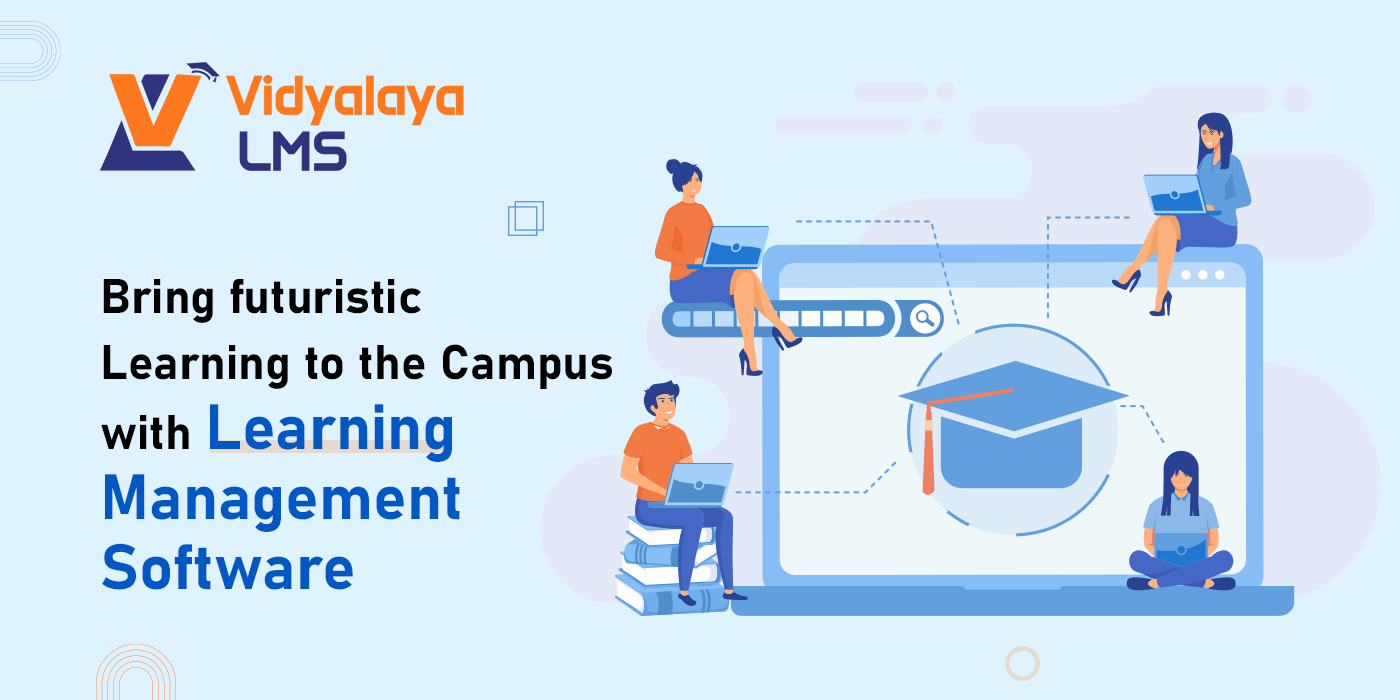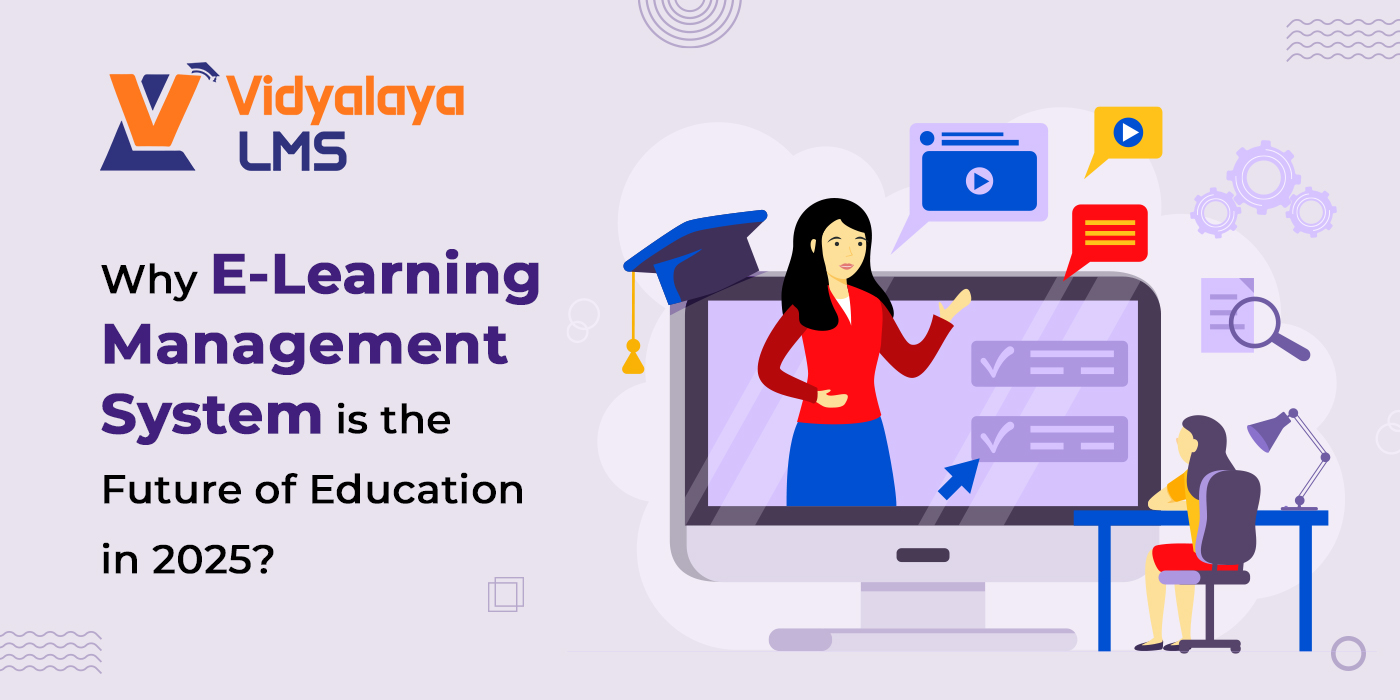“Online education, then, can serve two goals. For students lucky enough to have access to great teachers, blended learning can mean even better outcomes at the same or lower cost. And for the millions here and abroad who lack access to good, in-person education, online learning can open doors that would otherwise remain closed.” – Daphne Koller.
The importance of e-learning is summarized in the above statements. And market figures are even proving it right. According to the latest news, the e-learning market is expected to exhibit a growth rate of 8.3% CAGR during 2024-2032. The moral of all the above is that embracing e-learning software has become necessary for today’s educational institutes to achieve sustainable growth. Rapid technological advancements and the peaking tide of digitalization are already imposing profound and unprecedented transformations. So, it’s the right time to join the wave and have your own Learning Management Software at your campus!
Understanding the Learning Management Software!
A Learning Management Software is a software application intended to plan, implement, and assess learning processes. The product serves as a centralized platform for the creation, management, and delivery of e-learning content. Educators can design and deliver courses that are available for access from anywhere, any time. Thus, e-learning software has made learning more accessible, affordable, and convenient.
The learning management software has won brownie points over the traditional approach in the following aspects:
- Enables educators to create content in diverse formats like multimedia, video lectures, interactive quizzes, etc.
- Educators can easily add, modify, and delete course and course content and share it with the learners within a few seconds.
- Integration of various software to make the learning journey more engaging and enjoyable.
- Secure storage and an all-in-one platform for all types of learning needs.
How Learning Management Software is bringing futuristic changes in education!
With the Learning Management System, learners get the freedom to engage with the course resources on their own schedules and terms. Here is how it can bring the change in monotonous learning process:
1. Improved Accessibility:
No more geographical barriers to learning when E-Learning Apps or Software is there. It allows students from remote locations to access the course content. They can embark on their learning journey from their comfort places with a smart device having a reliable internet connection. The learning software complies with the standards that ensure content is operable and conceivable to all users.
2. Personalized Learning:
A learning management system promotes personalized learning and overrules traditional learning. It enables users to create personalized learning paths based on the learner’s skills, requirements, goals, and interests. It also enables learners to adjust their learning according to the pace and difficulty of the content based on the learner’s performance and progress. Many Learning Management software reinforce their knowledge by enabling them to revisit sessions.
3. Cost-effective Solution:
Although the e-learning approach may require an initial investment in purchasing the software for it, it is worth it. A learning management system eliminates the cost required for infrastructure, commute costs, and other stationery costs. With high-quality resources, the software makes learning accessible for all, to those also who are lagging the education because of cost.
4. Interactive Engagement:
Learners are done with the static and monotonous content available in books, novels, reference books, etc. With the learning management software, educators can create engaging content with diverse formats. They can create and insert audio, video, images, slide shows, and animation content along with the text. Not only this, gamification and simulation-based content are also available for a better understanding of complex educational concepts. This high-level engagement improves student interest and retention rates.
5. Synchronous and Asynchronous Learning:
The learning management system promotes synchronous and asynchronous learning. It fills the gap between self-paced learning and real-time learning. It schedules live training sessions and allows remote learning. With interactive lessons, learners can interact with each other through chats or live video. LMS supports both learning methods and creates a dynamic and flexible learning environment.
6. Data-driven Insights:
The true power of Learning management software lies in the data insights. The system can track students’ learning progress over time, and collect and analyze data based on their performance, progress, needs, and challenges. Educators can monitor the entire process and identify the learning patterns and gaps for improvement. They can also assess the student’s strengths and weaknesses and offer personalized feedback with real-time insights.
7. Collaborative Learning:
E-learning software always transcends the solitary nature of learning and thus fosters a collaborative ecosystem. Students can interact, discuss, participate, and co-create learning concepts with a better understanding. With integrated tools for video conferencing, group forums, and chat groups, the software enables face-to-face interaction and screen-sharing in real time. It facilitates users with brainstorming sessions, project discussions, and peer-to-peer learning without leaving the comfortable LMS environment. This fosters essential teamwork and communication skills.
8. Resource centralization:
Learning management software serves as a central library for knowledge, and houses a wide range of resources- eBooks, course videos, lectures, and others. Learners can also explore the ocean of information at their fingertips anytime with the help of a mobile app. Thus, it eliminates the compulsion of physical attendance in the classes to learn. Teachers can upload course material and make the process easy for learners to access everything in one place.
Conclusion:
The E-learning market is surging like never before and is expected to rise in coming years as advancements like AI integration, simulation, gamification, and AR are becoming the key players in education. So, EdTech companies are delivering according to market demand and are integrating the latest features in their products. This paradigm shift underlines the importance of Learning Management Software which is a key factor in this transformation.
Vidyalaya has already launched its E-Learning Software and is satisfying its clients by educating students in a futuristic approach. The future of education is intertwined with the evolution of LMS, so ask us for a free demo of our product. Get a sneak peek into it to boost your decision. Contact us for more details.











